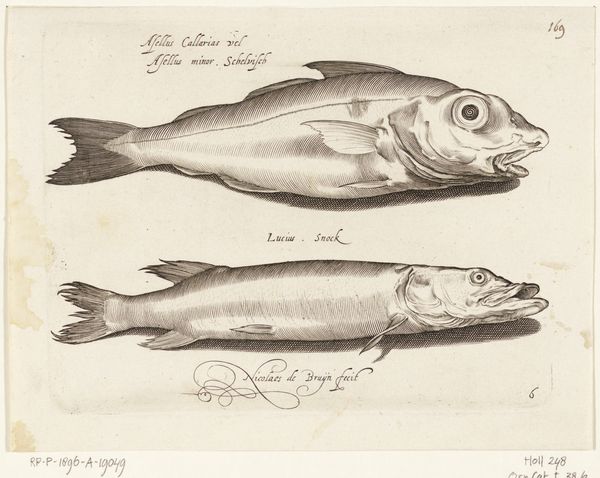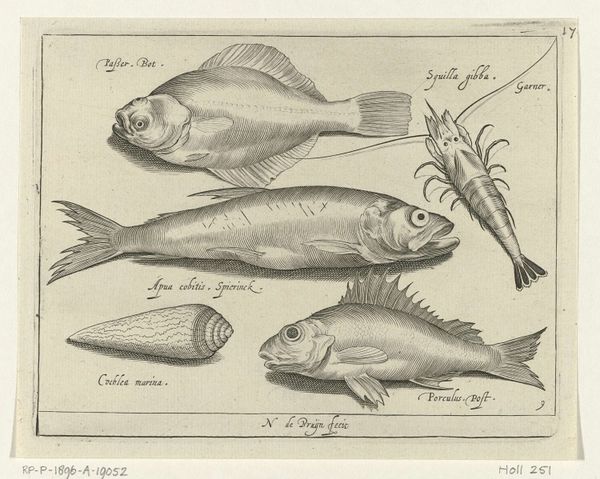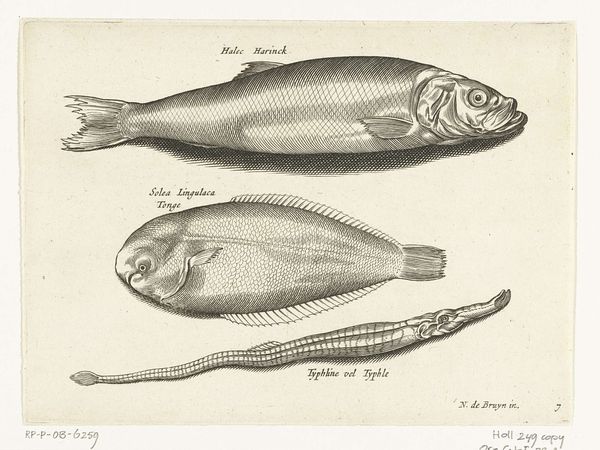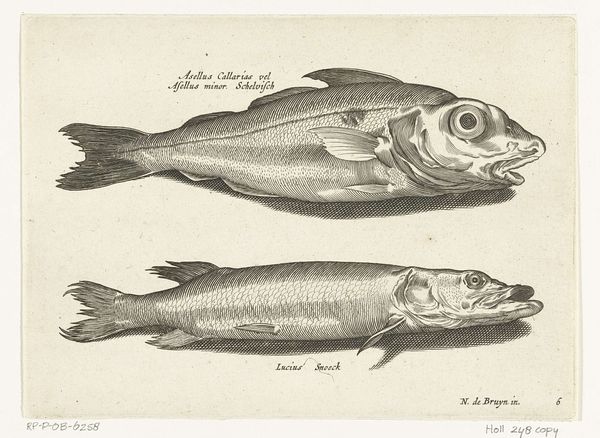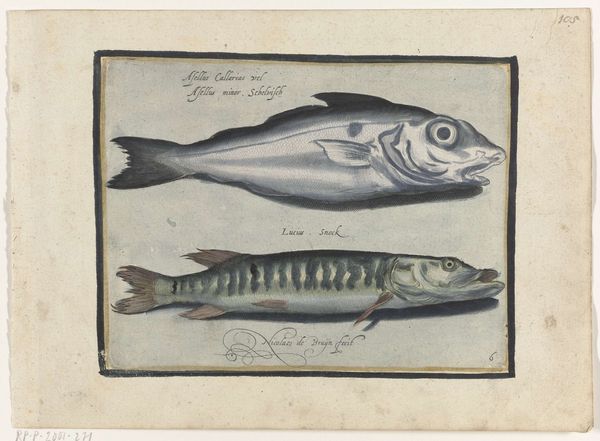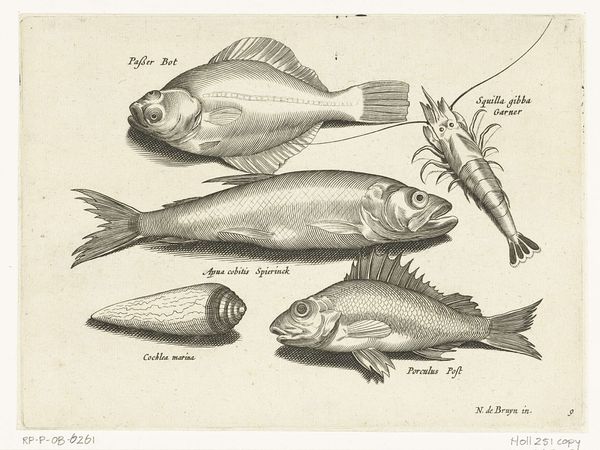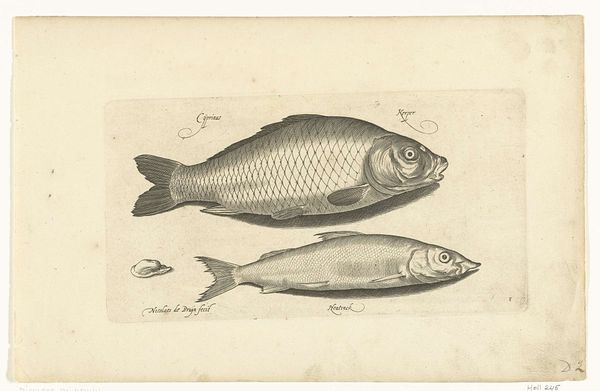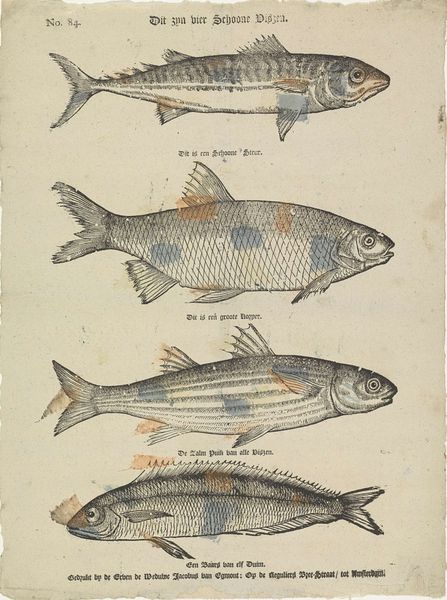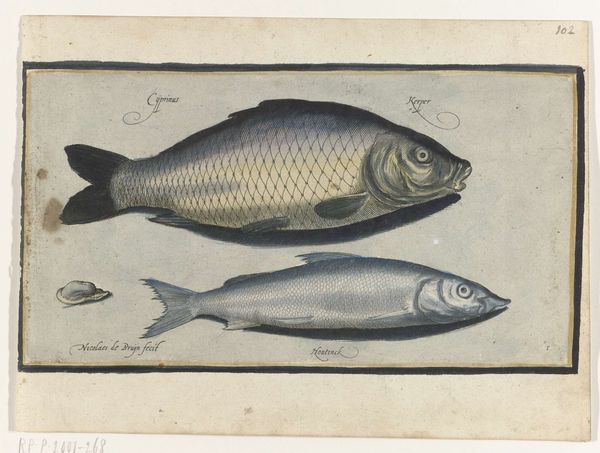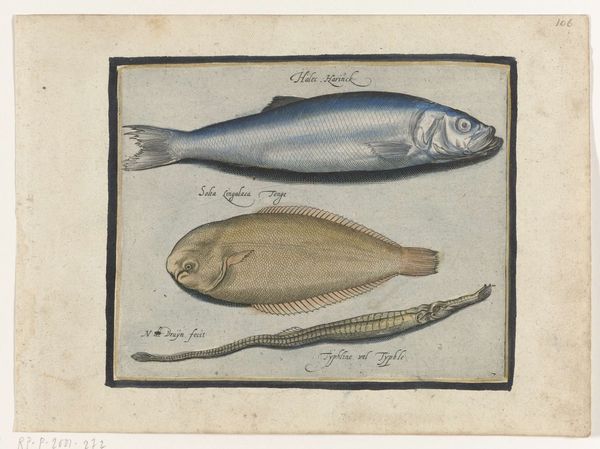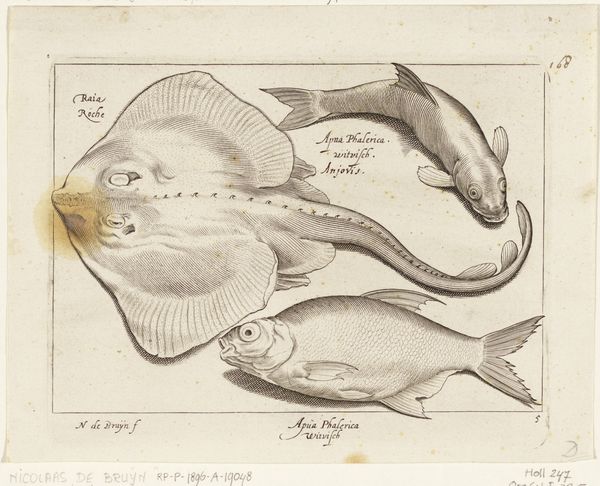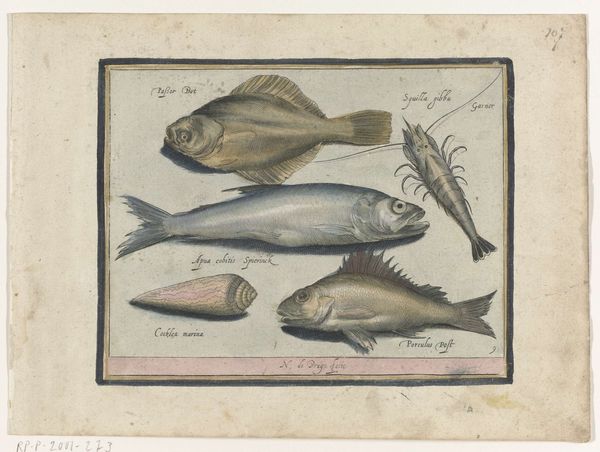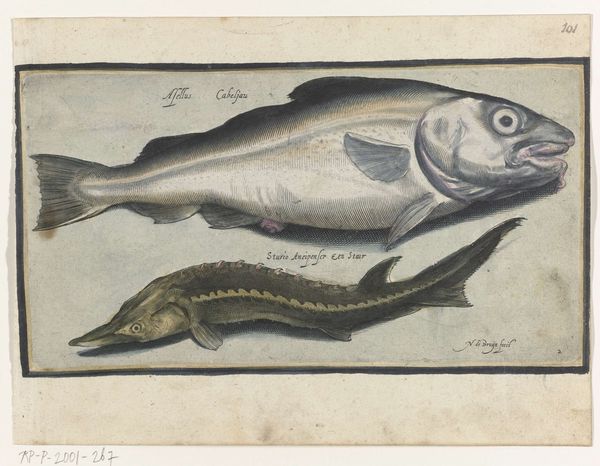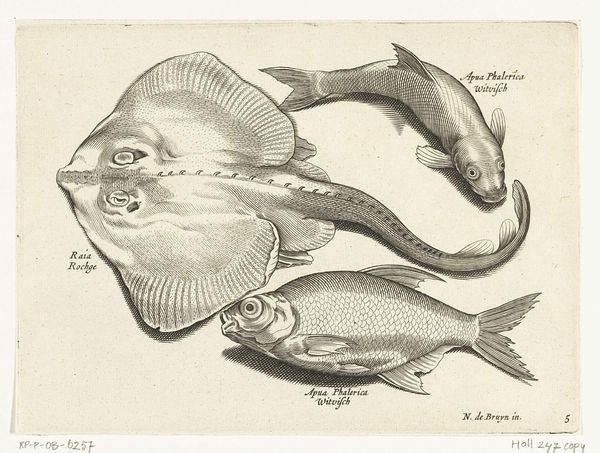
print, engraving
#
baroque
# print
#
figuration
#
line
#
engraving
#
realism
Dimensions: height 129 mm, width 152 mm
Copyright: Rijks Museum: Open Domain
This print, made by Nicolaes de Bruyn around the turn of the 17th century, depicts a herring, a sole, and a pipefish. The technique here is etching, a painstaking intaglio process. The artist would have covered a metal plate with a waxy ground, then scratched away lines to expose the metal underneath, before submerging the whole thing in acid. Look closely and you'll notice the way the density of lines varies to suggest light and shadow on the fishes' bodies. This kind of printmaking was very labor-intensive, but it allowed for the relatively easy reproduction of images. These would have been crucial to the expansion of scientific knowledge in the early modern period. They also played a role in the development of consumer culture, making the likenesses of exotic goods, or even familiar foodstuffs like the herring, accessible to a broad public. Here, materials, making, and social context converge, reminding us that even a seemingly straightforward image is deeply enmeshed in its time.
Comments
No comments
Be the first to comment and join the conversation on the ultimate creative platform.
